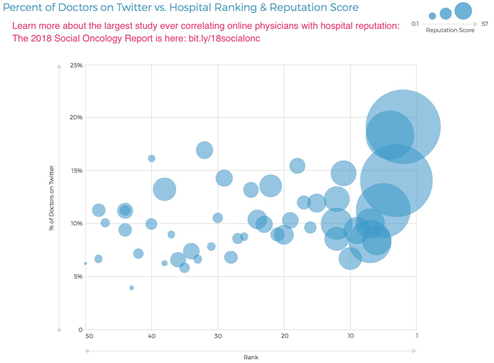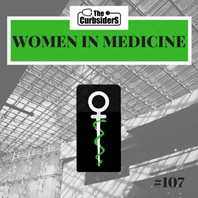2018 August Newsletter
Welcome!
|
Oncologist in the Hot Seat

Have a burning question related to work-life balance, leadership, mentorship, or career development? We have been featuring esteemed oncologists across Canada since 2013. From New Brunswick, we are very pleased to introduce Dr. Margot Burnell. Send your questions to This email address is being protected from spambots. You need JavaScript enabled to view it. to have them answered by our Oncologist in the Hot Seat!
Mentor of the Month: Dr. Mira Keyes
Dr. Maryam Dosani and Dr. Michelle Bale Nomination Statement: What we have appreciated the most, however, is the time she takes to provide insight and guidance to trainees. She is always available for advice, for coffee, or to listen. She asks about our lives outside of medicine, and seems genuinely interested in our happiness and wellbeing. Dr. Keyes encourages us to think about the integration of work and life. She shares her personal stories of successes and set-backs, and makes us feel like it is ok to falter during residency training and beyond. She has arranged many extra educational sessions during our training—from diverse topics ranging from anatomy to prevention of burnout. 
Dr. Mira KeyesDr. Keyes is a Clinical Professor in Radiation Oncology, Division of Surgery, at the University of British Columbia (UBC) Vancouver, BC Canada. In 1996, she completed Radiation Oncology Residency Training Program at UBC. Dr. Keyes is one of the four founders of the British Columbia cancer Agency (BCCA) Prostate Brachytherapy Program, established in 1998. Since 2006, she is a Provincial Brachytherapy Program Head. Dr. Keyes is a co-chair for the Royal College Brachytherapy Diploma Group development.. She is a recipient of serval UBC teaching awards including: 2017 AD McKenzie UBC Department of Surgery Clinical Teaching Award, 2016 Best Teacher Award and 2014 CanMeds of Excellence both UBC Radiation Oncology Residency Training Program Awards. In 2017 she was awarded ABS – Presidents Award for outstanding contribution to American Brachytherapy Society. She is an author of over 60 peer reviewed manuscripts and recipient of many peer review grants including a CIHR grant in 2015 for translational research. She has a large clinical GU and breast cancer practice.
August’s Article of the month

The Social Oncology Report 2018Link to Download Article: http://www.w2ogroup.com/the-social-oncology-report-2018/#un1 Our favorite statistic: Of the 25 top cancer hospitals as identified by UNSWR ratings, 17 have more than 20% of their oncology specialists active on twitter. Twitter is a great place to foster mentorship, sponsorship, and learning between physicians!
Upcoming Events
Federation of Medical Women of Canada AGM What’s in a Name?Dr. Sharonne Hayes, Dr. Anita Mayer, and Dr. Julia Files investigate the too common experience of female physicians receiving informal introductions while their male counterparts are referred to as “doctor”. Read the full article here: https://www.kevinmd.com/blog/2017/03/physicians-not-called-doctor.html 
Make sure to follow @WomenInMedicineChat on twitter for live discussions among physicians from across the globe on issues women in medicine face. Sundays @ 9pm EST
Podcast Recommendation

The Curbsiders: Women in Medicine, Be BoldDr. Vineet (Vinny) Arora, Professor of Medicine at the University of Chicago, an exemplary Woman in Medicine and Leadership, shares snippets of her own story, and valuable career advice to folks at all levels of training, promotion, and pay. |

As networking and mentorship are invaluable to medicine and advancements in the field of oncology, All in Cancer (AlinC) and Women in Cancer (WinC) were developed to improve mentorship connections, provide leadership skills resources, and improve collaboration amongst oncologists through a secure online networking platform.
Join the discussion on the AlinC or WinC Discussion Forum today.
Encourage your colleagues to join the largest online networking forum for medical, radiation, surgical, and hematological oncologists and trainees in Canada.
Visit www.allincancer.org or womenincancer.org for more information.
Happy networking!
www.allincancer.org
womenincancer.org
More Articles...
Membership is restricted to medical, radiation, and surgical oncologists as well as hematologists and trainees.
| Powered by |
Oncologists
- Oncologist in the Hotseat Dr. Daniel Rayson
- Oncologist in the Hotseat Dr. Joy McCarthy
- Oncologist in the Hot Seat Dr. Jean-François Boileau (FR) (EN)
- Oncologist in the Hot Seat Dr. Julie Lemieux (FR) (EN)
- Oncologist in the Hotseat Dr. Scott Berry
- Oncologist in the Hotseat: Dr. Kathy Pritchard

